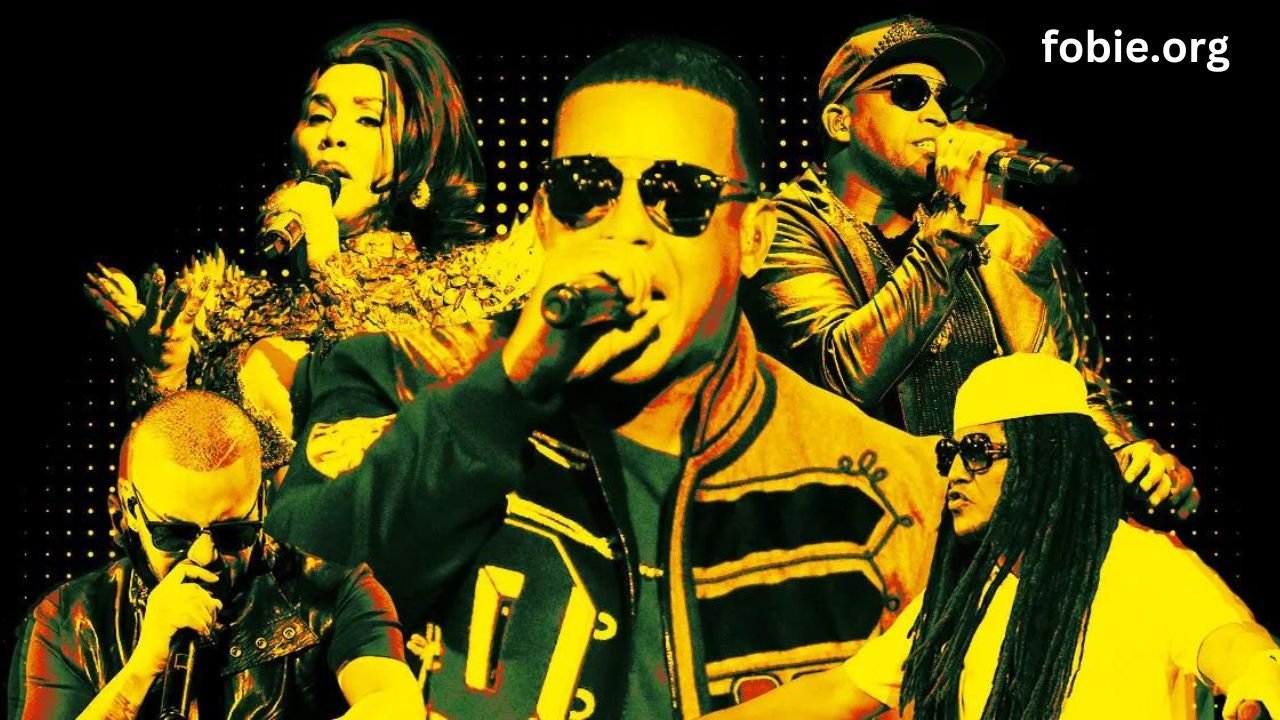Introduction to Guatauba and Its Origins
Reggaeton is a musical genre known for its catchy beats and vibrant rhythms, originating from the heart of Puerto Rico. Within this pulsating world lies the term guatauba, a word that has shaped discussions around explicit content in music. Guatauba refers to lyrics that are sexually explicit or vulgar, often found within reggaeton tracks. This term has sparked debate due to its explicit nature and cultural implications.
The purpose of this blog is to explore the origins, evolution, and cultural impact of guatauba. We’ll also examine its reception across different age groups and societies. By shedding light on this controversial aspect of reggaeton, we aim to offer insights into how music mirrors societal norms and challenges.
The Evolution of Guatauba
Tracing Guatauba in Reggaeton Music
Guatauba’s origins are deeply rooted in the birth of reggaeton in the late 1980s and early 1990s. Emerging from the underground clubs of San Juan, reggaeton was initially influenced by genres such as reggae, hip-hop, and Latin music. Artists began using guatauba to express raw and unfiltered emotions, often addressing taboo subjects. Its inclusion in songs was both a form of rebellion and a reflection of real-life experiences in Puerto Rico.
Over time, guatauba evolved as reggaeton gained mainstream popularity. Initially seen as provocative and shocking, it became an integral part of the genre’s identity. Artists like Daddy Yankee, Tego Calderón, and Ivy Queen used guatauba to capture the attention of a growing audience, blending explicit lyrics with infectious beats. This evolution marked a significant shift in how reggaeton was perceived globally.
The Term’s Evolution and Contemporary Use
In today’s music landscape, guatauba has taken on new dimensions. While explicit content remains a hallmark of reggaeton, artists are exploring more nuanced approaches. Contemporary reggaeton incorporates guatauba with clever wordplay and innovative storytelling. This evolution has allowed the genre to expand its reach beyond its traditional borders, appealing to diverse audiences worldwide.
The use of guatauba in contemporary culture transcends music. Social media platforms, memes, and digital content have embraced the term, further popularizing its usage. This digital integration highlights how guatauba continues to evolve alongside technological advancements and cultural shifts.
The Role of Guatauba in Reggaeton’s Identity
Guatauba plays a pivotal role in defining reggaeton’s identity. It represents a blend of influences, combining elements of African, Latin, and Caribbean cultures. The term encapsulates the genre’s ability to challenge conventional norms and provoke discussions about sexuality, gender, and societal expectations. Reggaeton’s global success is inseparable from its use of guatauba, which adds layers of complexity and intrigue to its music.
Cultural and Social Impact of Guatauba
Societal Attitudes and Acceptance
The societal attitudes toward guatauba are as varied as the cultures that engage with reggaeton. In Puerto Rico, where reggaeton originated, guatauba is often viewed as a reflection of everyday life and struggles. It provides an outlet for marginalized voices to express their realities, making it an essential component of Puerto Rican identity.
However, guatauba’s explicit nature has sparked debates about its appropriateness and impact on society. While some argue that it perpetuates harmful stereotypes and objectification, others view it as a form of artistic expression and empowerment. These differing perspectives highlight the complex relationship between music, culture, and societal values.
Impact on Gender Roles and Sexualization
Guatauba has a profound impact on discussions about gender roles and sexualization. Critics argue that the explicit content often objectifies women and reinforces patriarchal norms. However, female artists like Ivy Queen and Karol G have used guatauba to challenge these narratives, reclaiming their voices and asserting their autonomy.
This dynamic adds depth to the discourse surrounding guatauba, encouraging conversations about feminism, equality, and representation in the music industry. By addressing these complex issues, reggaeton artists contribute to broader discussions about gender dynamics in contemporary society.
Censorship and Media Representation
The explicit nature of guatauba has led to censorship and regulation in various media outlets. Radio stations, streaming platforms, and television networks often impose restrictions on songs containing explicit content. These measures aim to protect younger audiences while igniting debates about artistic freedom and censorship.
Media representation of guatauba also influences its perception. News outlets and documentaries have explored its cultural significance, shedding light on its role in shaping reggaeton’s identity. This coverage amplifies discussions about the power of music to challenge norms and provoke societal change.
International Influence and Popularity of Guatauba
Transcending Puerto Rican Culture
Guatauba’s influence extends far beyond Puerto Rican borders. As reggaeton gained international recognition, guatauba became a global phenomenon. Artists from different countries incorporated the term into their music, adding their unique cultural flavors to the mix. This cross-cultural exchange has enriched reggaeton’s sound, making it a dynamic and evolving genre.
The international appeal of guatauba highlights the universal themes of love, desire, and rebellion that resonate with audiences worldwide. It serves as a bridge connecting diverse cultures through a shared appreciation for music and expression.
Notable Instances in International Music
Guatauba’s presence in international music is undeniable. Collaborations between reggaeton artists and musicians from other genres have resulted in chart-topping hits that incorporate guatauba. Songs like “Despacito” by Luis Fonsi and Daddy Yankee and “Taki Taki” by DJ Snake, Selena Gomez, Ozuna, and Cardi B showcase guatauba’s ability to captivate global audiences.
These collaborations demonstrate the term’s adaptability and versatility, proving that guatauba can seamlessly integrate with different musical styles. This fusion of sounds continues to shape the global music landscape, further solidifying reggaeton’s place in popular culture.
Reception Across Different Cultures
The reception of guatauba varies across cultures, reflecting differing societal norms and values. In some regions, its explicit content is embraced as a celebration of freedom and individuality. In others, it faces criticism for perpetuating negative stereotypes and promoting vulgarity.
Despite these differences, guatauba’s ability to provoke thought and spark discussions remains consistent. Its presence in international music encourages cross-cultural dialogues about art, expression, and societal taboos. These conversations contribute to a more interconnected and understanding global community.
Controversy and Reception of Guatauba
Arguments for and Against Guatauba
Guatauba’s explicit nature has sparked passionate debates among music enthusiasts, scholars, and cultural critics. Advocates argue that it reflects authentic experiences and challenges societal norms, providing a platform for marginalized voices. They assert that guatauba is a form of artistic expression that allows artists to push boundaries and provoke meaningful conversations.
Conversely, critics contend that guatauba promotes negative stereotypes and objectification, particularly of women. They argue that its explicit content contributes to the normalization of harmful behaviors and attitudes. This ongoing debate underscores the complexity of guatauba’s role in music and society.
Perception by Different Age Groups
The perception of guatauba varies across age groups, influenced by generational differences in cultural values and attitudes toward explicit content. Younger audiences often view guatauba as a form of rebellion and self-expression, resonating with its bold and unapologetic nature.
Older generations may approach guatauba with caution or skepticism, perceiving it as a departure from traditional musical values. These generational perspectives highlight the evolving nature of cultural norms and the role of music in shaping societal attitudes.
The Role of Parental Advisory
The explicit nature of guatauba has led to the implementation of parental advisory labels on music releases containing explicit content. These labels serve as a guide for parents and guardians, allowing them to make informed decisions about the media consumption of younger audiences.
Parental advisory labels also contribute to discussions about censorship, artistic freedom, and the responsibility of artists to their audiences. By navigating these complex issues, artists and consumers alike engage in ongoing conversations about the power of music to influence and inspire.
YOU MAY ALSO LIKE
Understanding “Spit on That Thang Meaning” in Culture
Conclusion
Guatauba is a term that encapsulates the spirit of reggaeton—a genre that thrives on pushing boundaries and challenging conventions. Its evolution from underground clubs in Puerto Rico to global stages reflects the dynamic nature of music and culture. By exploring the origins, impact, and reception of guatauba, we gain valuable insights into the power of music to shape societal norms and provoke thought.
Looking to the future, guatauba will continue to evolve alongside reggaeton, adapting to changing cultural landscapes and technological advancements. Its presence in international music and digital platforms underscores its enduring relevance and ability to transcend borders.
We invite you to join the conversation—share your thoughts on guatauba in the comments below. Whether you view it as a form of artistic expression or a controversial element of music, guatauba remains a powerful force in shaping the world of reggaeton and beyond. Together, let’s explore the complexities and possibilities that guatauba brings to the music industry and society at large.
FAQs
- What is the meaning of guatauba?
Guatauba refers to a term used in reggaeton music, symbolising a fusion of urban culture and artistic expression.
- Where did guatauba originate?
Guatauba originated in Puerto Rico, emerging from the vibrant reggaeton scene of the late 20th century.
- How has guatauba influenced international music?
Guatauba has influenced international music through collaborations with artists across genres, contributing to reggaeton’s global reach.
- Why is guatauba controversial?
Guatauba is controversial due to its explicit content, which sparks debates about artistic expression vs. societal norms.
- What are the cultural perceptions of guatauba?
Perceptions of guatauba vary; some see it as a celebration of individuality, while others critique its reinforcement of stereotypes.











